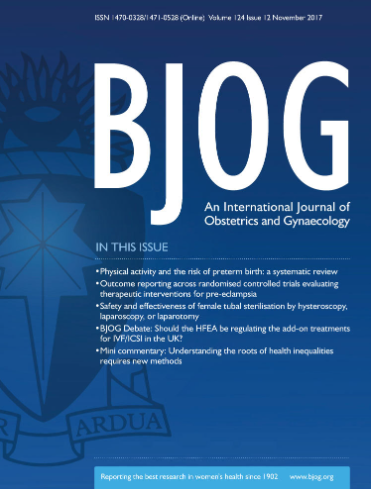Anxiety and Arterial Stiffness in High-Risk Pregnancies: A Secondary Analysis of a Prospective Cohort Study
Abstract
Objectives
In a high-risk pregnant population with singleton pregnancies, the primary objective was to evaluate the association between anxiety and arterial stiffness (AS) and the secondary objective was to investigate whether anxiety is associated with the incidence of preeclampsia.
Design
Secondary analysis of a prospective cohort study (2012–2016).
Setting
Two tertiary care antenatal clinics in Montreal, Canada.
Participants
High-risk pregnant individuals with pre-existing hypertension, diabetes, renal dysfunction, previous preeclampsia, or age ≥ 35 years were included. Exclusion criteria were excessive alcohol or drug use and cardiovascular disease. People with pregnancy loss, incomplete questionnaires and loss to follow-up were excluded from analysis.
Methods
Participants were enrolled before 14-weeks' gestation, with follow-up assessments of AS every 4 weeks until delivery. Anxiety symptoms were assessed every trimester by the Beck Anxiety Inventory and by self-reported history of emotional disorders (anxiety/depression).
Main Outcome Measures
AS and wave reflection parameters, primarily carotid-femoral pulse wave velocity and preeclampsia diagnosis.
Results
Of 235 individuals recruited, 161 were included in this secondary analysis. Baseline anxiety symptoms were present in 35.4% of participants. Anxiety was associated with a significant increase in carotid-femoral pulse wave velocity across gestation, which persisted after adjustments for relevant confounders, in a combined mixed-effects model (B = 0.27, 95% confidence interval [CI] = 0.008–0.530, p = 0.04). A severity-response relationship was observed, where greater anxiety severity correlated with higher AS. Twelve participants (7.5%) developed preeclampsia. The association between anxiety and preeclampsia risk showed a non-significant trend (odds ratio [OR] = 2.77, 95% CI = 0.84–9.18). However, a history of emotional disorders significantly elevated preeclampsia risk (OR = 3.91, 95% CI = 1.14–13.40), independent of other risk factors.
Conclusions
Anxiety in high-risk pregnancies is associated with increased AS in a severity-response manner, and may be associated with preeclampsia risk. Integrating psychological health assessments with traditional obstetric evaluations could enhance the prediction and management of maternal complications.


 求助内容:
求助内容: 应助结果提醒方式:
应助结果提醒方式:


